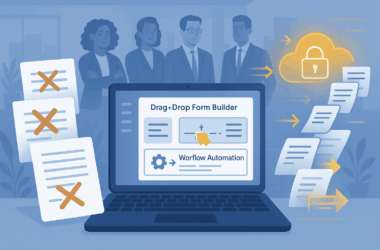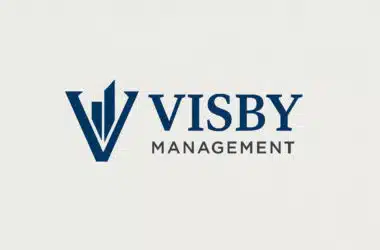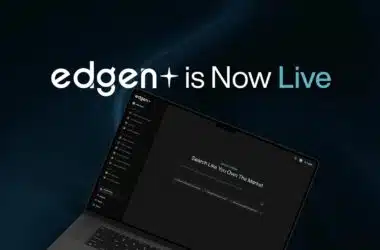You’ve got the skills, the ambition, and the drive to make it big in the fintech industry. But let’s face it – not every job offer is worth your time, and finding the perfect fit goes way beyond a fancy title and an impressive paycheck.
You’re not just looking for a job; you’re seeking a company with a culture that resonates with who you are and what you stand for. So, how do you separate the winners from the wannabes? It’s time to put on your investigator hat and do some research about your potential employer.
Table of Contents
Do Your Research
You’re about to embark on an exciting adventure into the world of fintech, and the first step is to dive deep into researching your potential employer. Here’s how you can uncover valuable information and get a feel for whether their company culture resonates with you:
a. Company Website and Mission Statement
Start by exploring their website, especially the “About Us” section. As you read through their mission statement, ask yourself if their core values and vision align with your own. Pay attention to the language they use as it can offer clues about the kind of work environment they foster.
b. Social Media Channels
Next, check out their social media presence on platforms like LinkedIn, Twitter, Facebook, and Instagram. These channels can provide a sneak peek into their day-to-day operations and how they engage with their employees. Keep an eye out for posts that highlight team-building activities, office celebrations, or community involvement – these can be great indicators of a positive company culture.
c. Press Releases and News Articles
Stay informed about their latest achievements, product launches, and industry recognition by reading press releases and news articles. This information can help you gauge the company’s growth trajectory, market positioning, and overall stability – factors that can impact your job satisfaction and career growth.
d. Employer Review Websites
Take advantage of websites like Glassdoor, Indeed, and Comparably, where current and former employees share their experiences. While individual opinions may vary, look for common themes and potential red flags in these reviews to get a better understanding of the company’s culture and management style.
e. Industry Forums and Networking Events
Join industry forums and networking events to connect with professionals who have firsthand experience working with the company. Engaging in conversations with these individuals can offer you valuable insider perspectives on the company’s culture.
f. Corporate Social Responsibility (CSR) Initiatives
Finally, investigate the company’s CSR initiatives and their commitment to environmental, social, and governance (ESG) issues. A strong focus on CSR can be a sign of a responsible and ethical organization that values its impact on society.
2. Speak to Staff
If possible, reach out to current or former employees of the company through LinkedIn or other professional networks. Engage in casual conversations to learn more about their experiences, the work environment, and the company’s culture. Ask specific questions about the aspects of the culture that matter most to you, such as work-life balance, growth opportunities, and diversity and inclusion policies.
3.Ask the Right Questions During the Interview
Use the interview process to gather more information about the company’s culture. To do this effectively, consider the following tips:
a. Prepare a List of Questions:
Before the interview, create a list of questions related to the aspects of company culture that are important to you. This could include inquiries about the work environment, team dynamics, management styles, and opportunities for professional development.
b. Observe Non-Verbal Cues:
Pay attention to the interviewer’s body language, tone of voice, and facial expressions when discussing the company culture. These non-verbal cues can provide valuable insights into their level of enthusiasm and sincerity.
c. Evaluate Communication Styles:
Take note of how the interviewer communicates throughout the interview. Are they open and transparent, or do they seem guarded and evasive? This can be an indicator of the overall communication style within the organization.
d. Discuss Company Values:
Ask about the company’s core values and how they are reflected in daily operations. This can help you determine if your personal values align with those of the company.
e. Inquire About Employee Engagement:
Find out what initiatives the company has in place to promote employee engagement, such as team-building activities, training programs, and recognition systems. This can give you an idea of how the company invests in its employees’ well-being.
f. Ask About Work-Life Balance:
Explore the company’s approach to work-life balance by asking about flexible working arrangements, vacation policies, and expectations around overtime.
5. Assess the Office Environment
If you have the opportunity to visit the office, pay attention to the physical space, employee interactions, and general atmosphere. Is the office layout open and conducive to collaboration, or is it more traditional with closed-off cubicles? Do employees seem engaged and happy, or do they appear stressed and disengaged? These observations can also help you gauge the company’s culture.
6. Evaluate the Onboarding Process
A well-structured onboarding process reflects a company’s commitment to employee success and integration into the company culture. Inquire about the onboarding process, including training, mentorship programs, and opportunities to connect with colleagues.
7. Reflect on Your Values and Priorities
Finally, take the time to reflect on your personal values and priorities. Consider what aspects of a company’s culture are most important to you and whether the fintech company aligns with those values. This self-assessment will help you make an informed decision about accepting the job offer.
In conclusion, evaluating a fintech company’s culture is a crucial step in determining if it’s the right fit for you. By researching, speaking to staff, asking the right questions, and reflecting on your values, you can make an informed decision and set yourself up for success in your new role.















Recent Comments